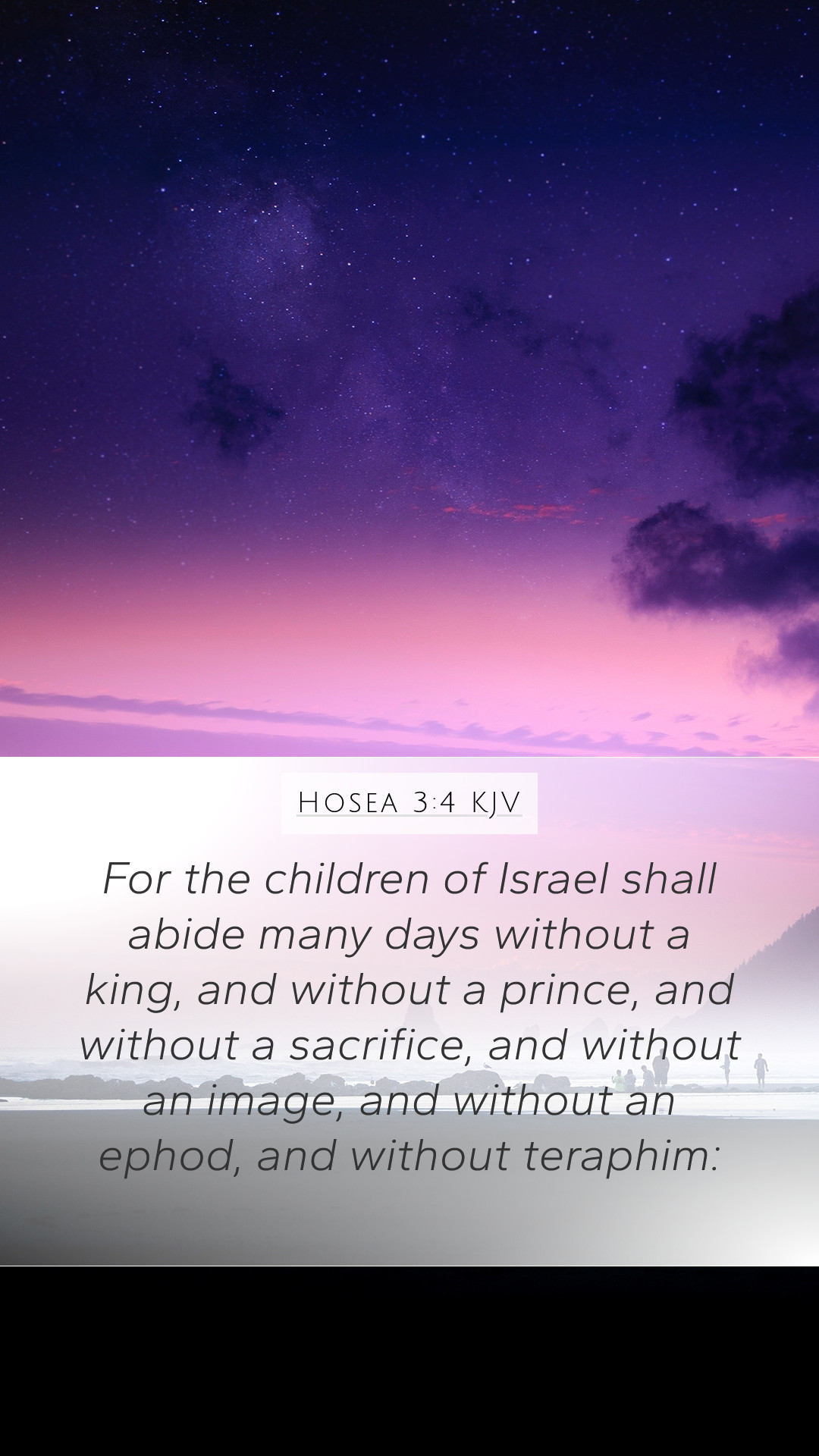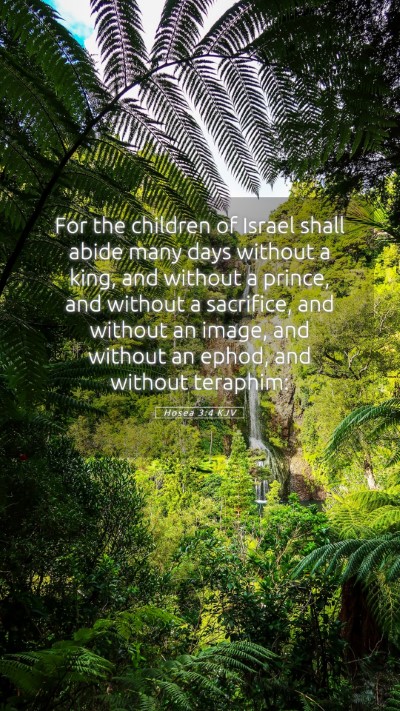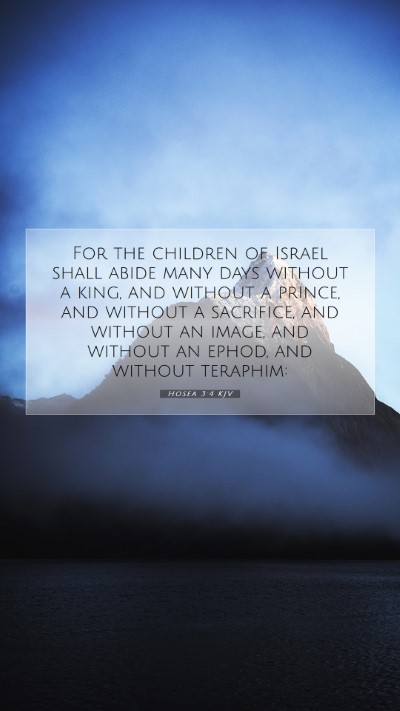Old Testament
Genesis Exodus Leviticus Numbers Deuteronomy Joshua Judges Ruth 1 Samuel 2 Samuel 1 Kings 2 Kings 1 Chronicles 2 Chronicles Ezra Nehemiah Esther Job Psalms Proverbs Ecclesiastes Song of Solomon Isaiah Jeremiah Lamentations Ezekiel Daniel Hosea Joel Amos Obadiah Jonah Micah Nahum Habakkuk Zephaniah Haggai Zechariah MalachiHosea 3:4 Meaning
What is the meaning of Hosea 3:4?
For the children of Israel shall abide many days without a king, and without a prince, and without a sacrifice, and without an image, and without an ephod, and without teraphim:
Hosea 3:4 Bible Verse Meaning
Understanding Hosea 3:4
In this section, we delve into the meanings and interpretations of Hosea 3:4, exploring its significance through various public domain commentaries. This verse encapsulates profound biblical themes, particularly addressing Israel's relationship with God.
Bible Verse Text
"For the children of Israel shall abide many days without a king, and without a prince, and without a sacrifice, and without an image, and without an ephod, and without teraphim:" (Hosea 3:4)
Verse Meaning and Interpretation
The interpretation of Hosea 3:4 can be understood through several lenses, as elaborated by notable theologians such as Matthew Henry, Albert Barnes, and Adam Clarke.
- Matthew Henry's Commentary:
Henry emphasizes that this verse serves as a prophetic declaration regarding Israel's impending exile, highlighting their desolation and loss of leadership. This verse foretells a time when the Israelites would be stripped of their national identity and religious practices, a consequence of their unfaithfulness to God. Henry notes that during this period, the people would long for restoration and a return to their covenantal relationship with God.
- Albert Barnes' Notes:
Barnes discusses the implications of each element mentioned in the verse—king, prince, sacrifice, image, ephod, and teraphim. He points out that the absence of these essentials signifies Israel's spiritual and political confusion. Without a king or leadership, the nation would struggle to maintain its identity, while the lack of sacrificial practices highlights a severed connection with God. Barnes acknowledges that this period is crucial for understanding the themes of repentance and restoration that run throughout the Book of Hosea.
- Adam Clarke's Commentary:
Clarke focuses on the metaphorical richness of the terms used in this verse. He interprets the 'king' and 'prince' as the failure of human leadership, while 'sacrifice' speaks to the loss of worship and the essential rituals that connect the people to God. Clarke emphasizes that the 'image' and 'teraphim' (household gods) point to the idolatry that prevailed in Israel, which ultimately led to divine judgment. This absence conveys a message of longing and anticipation for a future restoration that only God can provide.
Applications and Insights
Understanding Hosea 3:4 offers significant insights applicable to contemporary believers. Much like ancient Israel, modern individuals can experience spiritual droughts due to the neglect of faith, dismissal of divine authority, and the allure of idolatry in various forms:
- Spiritual Reflection: This verse serves as a reminder of the importance of maintaining a vibrant relationship with God to avoid desolation in our lives.
- Community Leadership: It urges communities and church leaders to recognize the vital role leadership plays in nurturing faith and guiding the flock towards righteousness.
- Repentance and Restoration: The historical context encourages believers to seek genuine repentance, reminding us that restoration is always possible through God's grace.
Cross-References
Hosea 3:4 resonates with several other biblical passages that share thematic elements:
- Isaiah 1:7-9: This passage outlines the desolation and judgment faced by Jerusalem due to its rebellion.
- Jeremiah 14:2-3: Indicates the lamentation and mourning of Judah due to its forsaken state.
- Amos 8:11-12: Highlights a famine of the word of the Lord, echoing the themes of spiritual drought occurring in Israel.
Conclusion
The exploration of Hosea 3:4 reveals its deep implications for both its original audience and modern readers. The absence of a king, sacrifices, and proper worship encapsulates the core spiritual truth about divine relationship and fidelity to God. This commentary serves to enhance understanding Scripture through the lens of biblical exegesis and aids in delivering insightful Bible study lessons.


